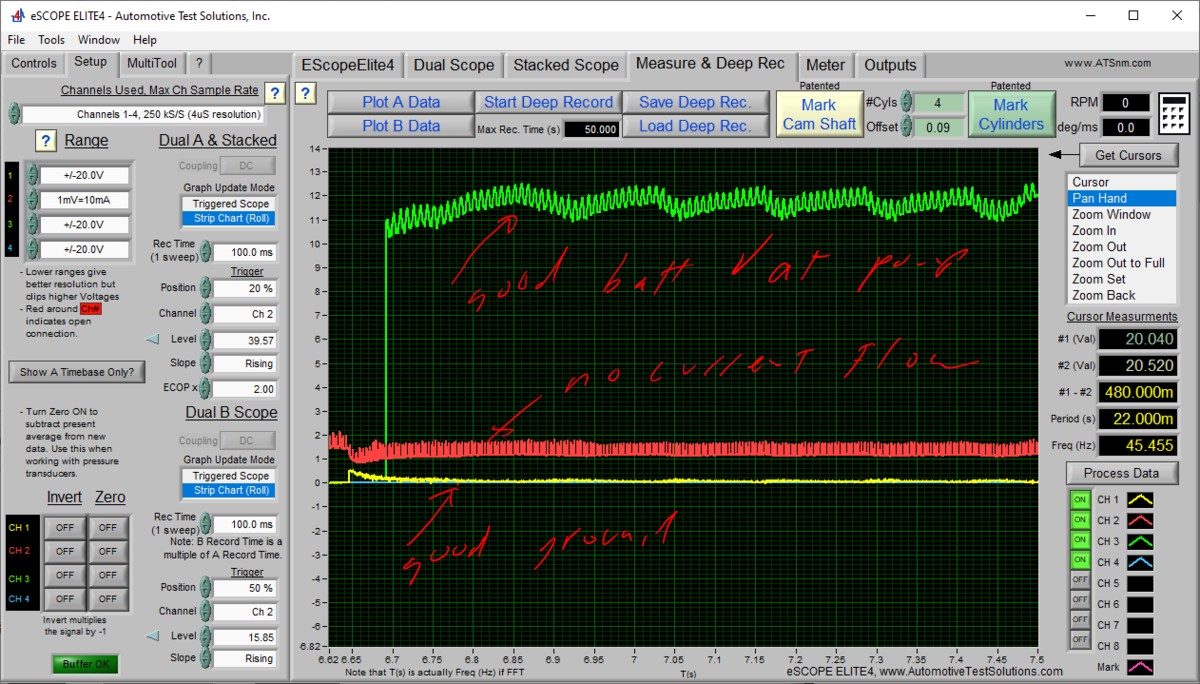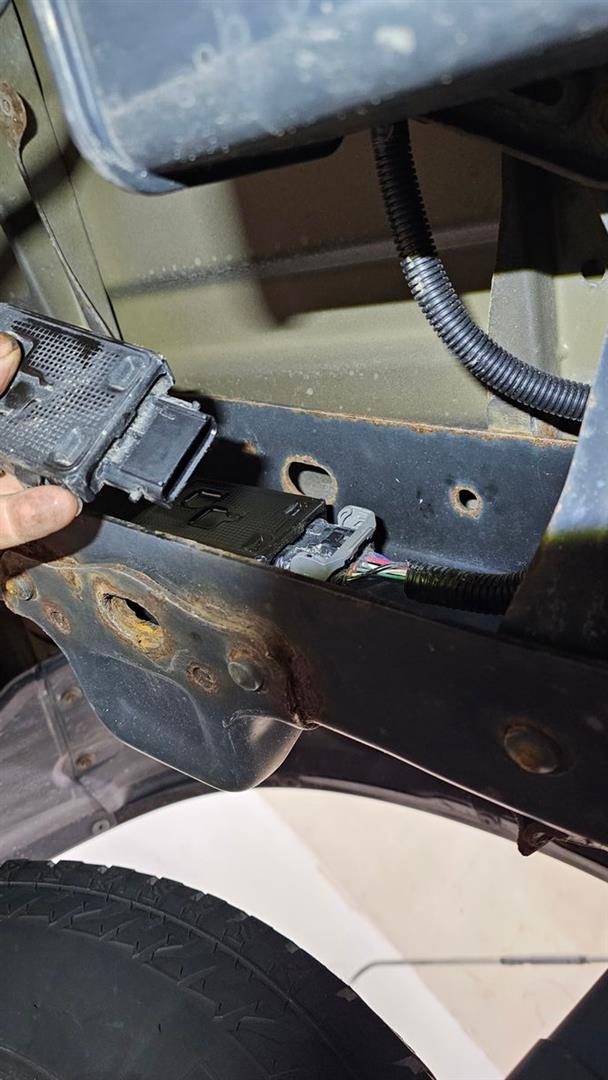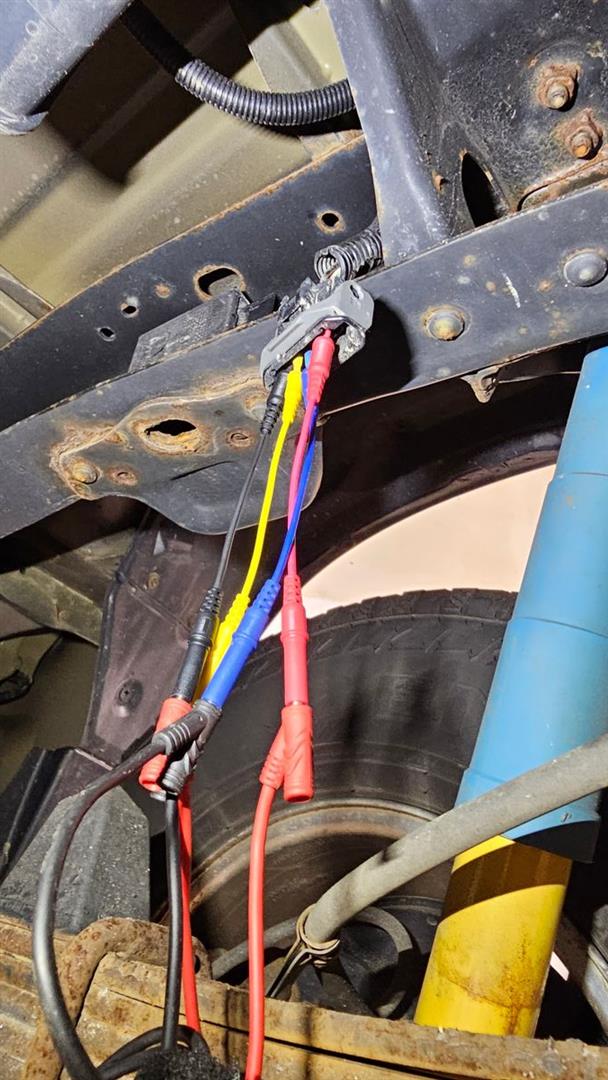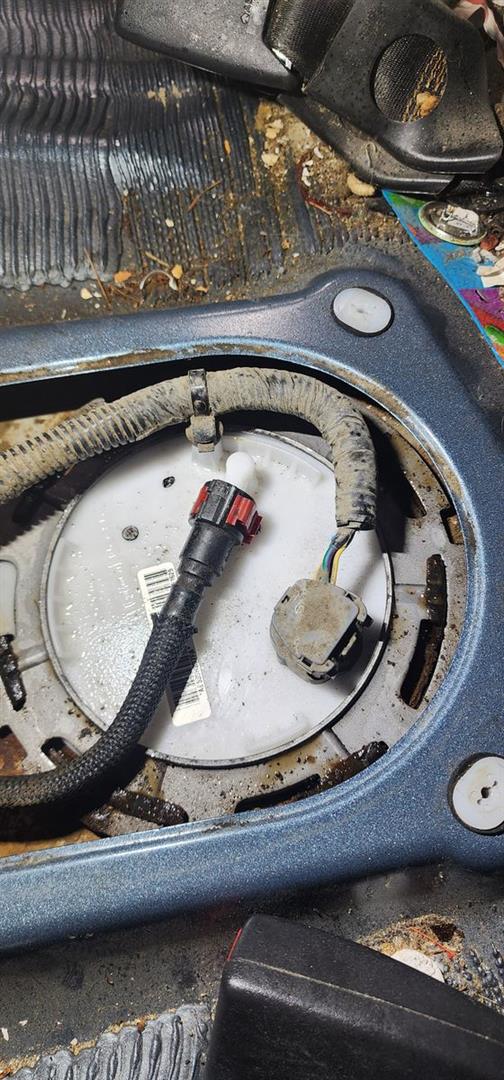Fuel Pump Diagnostics, Testing & Replacement in Concord, NH
Fuel pumps are the unsung heroes of your car’s engine. They quietly send fuel from the tank to keep your vehicle running. When they start to fail, it can leave you stranded or struggling to accelerate. Here we will talk about some of the signs of a weak or failing pump as well as the complexities of today’s modern fuel systems. As well as why proper testing and diagnostics are critical to repairing these systems. Including systems with more than one pump with sophisticated speed and volume control modules. Also, how Accomplished Auto in Concord, NH can help with professional fuel pump testing and high-quality replacement. Finally, we’ll share some tips to extend your fuel pump’s life. Let’s dive in!
vehicle running. When they start to fail, it can leave you stranded or struggling to accelerate. Here we will talk about some of the signs of a weak or failing pump as well as the complexities of today’s modern fuel systems. As well as why proper testing and diagnostics are critical to repairing these systems. Including systems with more than one pump with sophisticated speed and volume control modules. Also, how Accomplished Auto in Concord, NH can help with professional fuel pump testing and high-quality replacement. Finally, we’ll share some tips to extend your fuel pump’s life. Let’s dive in!
Signs of a Failing Fuel Pump
How do you know if your fuel pump is on its way out? Watch for these warning signs:
- Difficult Starts: The engine cranks longer than usual or requires multiple attempts to start. A failing pump may not hold the static line pressure required after shutting down as well as taking more time to build up pressure. This can lead to extended or multiple cranks before reaching the required pressures to run the car.
- Sputtering or Stalling: You might feel the engine sputter at highway speeds or even stall out, especially after running for a while. Often the car will restart after a brief rest. This is a clue the pump could be overheating.
- Loss of Power: If your vehicle loses power going up hills or under heavy load, a failing fuel pump could be starving the engine of fuel. You press the gas, but the car struggles to maintain speed or accelerate, especially at higher speed or load.
- Surging or Jerky Acceleration: In some cases, a bad pump can cause surging – the vehicle speeds up and slows down unpredictably. This happens when the fuel delivery is inconsistent.
- Whining Noise from the Tank: A loud, high-pitched whine or hum coming from the gas tank is a classic symptom of a fuel pump going bad. Healthy pumps make a soft hum; a noisy pump means it’s straining or worn out.
- Battery is OK But Needs to be Jump Started: Sometimes a failing pump has high internal resistance from worn motor brushes. This can be overcome with a jump start giving more of a boost. Or a not recommended old school trick is hitting the bottom of the tank. This sometimes temporarily restores pump operation.
If you notice one or more of these symptoms, don’t ignore it. What starts as a mild hesitation or noise can quickly turn into a car that won’t run at all. It’s best to get the issue checked early before you end up stranded.
Common Causes of Fuel Pump Failure
Fuel pumps can fail for a variety of reasons. Understanding why it happens can help you prevent future problems:
- Wear and Tear: Like any mechanical/electrical part, a fuel pump wears out over time. After tens of thousands of miles, the pump’s motor can simply weaken and lose pressure. Brushes, bearings, and other internal components eventually reach the end of their lifespan.
- Fuel Contamination: Dirty or bad fuel is a major fuel pump killer. Rust, dirt, or debris in your gas tank can clog the pump’s filter “sock” (intake screen). A clogged sock makes the pump work harder and runs hotter, which can burn out the motor. Water in gasoline or fuel that’s gone stale can also damage the pump. (Tip: It’s wise to buy gas from reputable stations to avoid contaminated fuel.)
- Running Low on Fuel: Frequently driving with less than a quarter tank of gas can cause the pump to overheat and fail faster. The fuel in your tank helps cool and lubricate the pump. If the pump isn’t submerged, it runs hotter. Running near empty also means the pump can pick up sediment from the bottom of the tank, which is bad for both the pump and engine. Consistently keeping at least 1/4 tank of fuel can significantly reduce this strain.
- Electrical Issues: Not all “fuel pump problems” are due to the pump itself. There are times that the power supply or controls are at fault. Wiring problems, a failing fuel pump relay, or a blown fuse can stop a good pump from working. Many modern cars also have a fuel pump control module (an electronic controller). If that module fails or has corroded connections, it may cut power to the pump. In any case, electrical gremlins can mimic a bad fuel pump, which is why proper testing and diagnostics is crucial before replacing parts.
Modern Fuel Systems Are More Complex
Years ago, most cars had a single fuel pump and a simple on/off circuit. Today, fuel systems have become far more advanced, which adds complexity when diagnosing issues. Here are a few factors that make modern fuel pumps more complicated:
- Dual Fuel Pumps: Many newer vehicles (especially those with gasoline direct injection engines) use two fuel pumps. There is an electric in-tank pump that supplies fuel to a secondary high-pressure pump mounted on the engine. The engine-mounted pump boosts fuel pressure to extremely high levels for the injectors. A problem in either pump can cause fuel starvation symptoms, so technicians must determine which one (or both) is malfunctioning.
- Variable Speed Pumps: Modern fuel pumps use variable speeds, unlike older one-speed models that return excess fuel to the tank. New vehicles supply only the needed fuel volume and pressure.
- External Control Modules: The FPCM or “fuel pump driver” is often a separate electronic module
 mounted somewhere in the vehicle. These regulate pump speed using pulse-width modulation based on engine demand. Delivering less fuel at idle or low load conditions or more under acceleration or high load. In some cars it’s located in the trunk or under the rear seat, but other times it’s bolted under the car, near the fuel tank. Here in New Hampshire, an underbody module is exposed to water, road salt, and mud. Corrosion can wreak havoc on these units, causing poor connections or internal damage that stops the fuel pump from receiving proper power. In fact, a corroded control module can mimic a failing fuel pump – the car might not start or might stall, even though the pump motor itself is fine.
mounted somewhere in the vehicle. These regulate pump speed using pulse-width modulation based on engine demand. Delivering less fuel at idle or low load conditions or more under acceleration or high load. In some cars it’s located in the trunk or under the rear seat, but other times it’s bolted under the car, near the fuel tank. Here in New Hampshire, an underbody module is exposed to water, road salt, and mud. Corrosion can wreak havoc on these units, causing poor connections or internal damage that stops the fuel pump from receiving proper power. In fact, a corroded control module can mimic a failing fuel pump – the car might not start or might stall, even though the pump motor itself is fine.
With these complexities, you can see why fuel issues aren’t always just “a bad pump.” There are multiple parts working together. This is where thorough diagnostics come in.
Professional Fuel Pump Diagnostics & Testing in Concord, NH
Because modern fuel systems have many moving parts (and even computers), accurate diagnosis is critical. At Accomplished Auto in Concord, NH, our trained and certified technicians have the expertise and advanced tools to pinpoint fuel pump problems quickly. We don’t just assume the pump is bad – we test it. This may include checking the fuel pressure with gauges, reading computer trouble codes, verifying power and ground to the pump, and inspecting the fuel pump control module if the vehicle has one. Often even using tools like lab scope to check current draw and condition of the pump motor and brushes. Our comprehensive fuel pump testing ensures we fix the right problem the first time.
At Accomplished Auto in Concord, NH, our trained and certified technicians have the expertise and advanced tools to pinpoint fuel pump problems quickly. We don’t just assume the pump is bad – we test it. This may include checking the fuel pressure with gauges, reading computer trouble codes, verifying power and ground to the pump, and inspecting the fuel pump control module if the vehicle has one. Often even using tools like lab scope to check current draw and condition of the pump motor and brushes. Our comprehensive fuel pump testing ensures we fix the right problem the first time.
If you’ve been searching for fuel pump diagnostics in Concord, NH or even “fuel pump testing near me,” look no further. We’ve seen it all – from clogged fuel filters and weak pumps to corroded wiring and failed modules. Our team will determine exactly what’s causing your symptoms. This saves you time, money, and the frustration of replacing parts you didn’t need. Once we have a clear diagnosis, we’ll explain the issue in plain language and recommend the proper repair to get you safely back on the road.
Fuel Pump Replacement in Concord, NH – Quality Parts & Service
When it comes to replacing a bad fuel pump, quality and thoroughness matter. A fuel pump replacement is not a job you want to do twice. Which means you don’t want inferior parts leaving you with more problems. At Accomplished Auto, we use high-quality replacement parts that meet or exceed OEM standards. In most cases, we will replace the entire fuel pump module assembly, not just the pump motor by itself. Why? The assembly includes not only the pump, but also a new filter strainer (sock), fuel level sending unit, and other components. Installing a complete module ensures that all the aging parts in the fuel tank get renewed together, giving you a more reliable repair. (Many modern pumps are sold only as assemblies for this reason – it’s the best practice for longevity.)
a job you want to do twice. Which means you don’t want inferior parts leaving you with more problems. At Accomplished Auto, we use high-quality replacement parts that meet or exceed OEM standards. In most cases, we will replace the entire fuel pump module assembly, not just the pump motor by itself. Why? The assembly includes not only the pump, but also a new filter strainer (sock), fuel level sending unit, and other components. Installing a complete module ensures that all the aging parts in the fuel tank get renewed together, giving you a more reliable repair. (Many modern pumps are sold only as assemblies for this reason – it’s the best practice for longevity.)
We also pay attention to related parts that can affect your fuel system. For example, if your vehicle has an external fuel filter along the fuel line (common in older models), we’ll likely recommend replacing that filter at the same time as the pump. A clogged fuel filter can strain a new pump, so it’s smart to start with a fresh filter to protect your investment. Our goal is to do the job right the first time, so you can drive away with confidence.
Replacing a fuel pump can be a complex task. This often iincludes draining and dropping the fuel tank, dealing with fuel vapors, and carefully installing delicate parts. Our professionals have the training and equipment to handle this safely and efficiently. We take care to clean any debris from the tank, use new seals and gaskets to prevent leaks, and double-check that the new pump communicates properly with your car’s electronics (for example, making sure your fuel gauge reads correctly). After installation, we test everything to ensure proper fuel pressure and performance. With our professional fuel pump replacement service, you can trust that your car will be fixed correctly and with utmost care.
Tips to Extend Your Fuel Pump’s Life
Nobody wants to replace a fuel pump sooner than necessary. Thankfully, there are a few simple habits and maintenance tips that can help your fuel pump last as long as possible:
- Keep the Tank at Least 1/4 Full: As mentioned, low fuel levels can cause the pump to overheat and suck in debris. Try not to run your car down to “E”. The fuel not only feeds the engine, it cools and lubricates the pump. Keeping a quarter tank or more will reduce stress on the pump and could add years to its life.
- Replace Fuel Filters Regularly: Check your owner’s manual to see if your car has a serviceable fuel filter. If it does, change it at the recommended interval (or sooner if you suspect bad fuel). Although most newer cars incorporate the filter in the tank fuel module. A clean fuel filter ensures steady fuel flow and prevents debris from reaching the pump or injectors. Similarly, whenever we replace an in-tank pump, we always install a new strainer (pump sock filter) to ensure no old gunk clogs the new pump.
- Use Quality Fuel: Save your fuel pump (and fuel injectors) some trouble by filling up with good-quality gasoline. Top Tier™ fuel from major brands contains detergents that keep the fuel system clean. Avoid gas stations that look poorly maintained or have a reputation for water in the fuel. A little extra care in fuel choice can prevent contaminants and corrosion in the fuel system.
- Don’t Let Your Car Sit Too Long: This is a lesser-known problem. But if a car sits for months with the same fuel, that gas can go stale and form varnish or sediment. Most fuels today contain ethanol which breaks down with age and moisture. If you plan to store a vehicle, consider adding a fuel stabilizer. Personally, I like Start-Tron but any on the major brands do a decent job. Old fuel can clog pumps and filters over time. Driving your car regularly and refueling with fresh gas will keep the fuel pump in better shape.
- Also Performing Regular Fuel System Treatment: As part of our BG fuel and intake system services, especially on Gasoline Direct Injection cars which we recommend at 30K miles. We include a can of 44K fuel system treatment that also cleans the pump lines and injectors. Reducing restriction and wear and tear on the pump.
By following these tips – keeping sufficient fuel in the tank, maintaining filters, and using clean fuel – you’ll reduce the strain on your fuel pump and likely avoid an early failure. Think of it as cheap insurance for an expensive part.
Serving Concord and Surrounding Communities
Whether you need fuel pump diagnostics, testing, or replacement in Concord, NH, Accomplished Auto is here to help with friendly, professional service. We proudly serve drivers in Concord and the surrounding towns, including Pembroke, Bow, Boscawen, Contoocook, Hooksett, and beyond. Our team has decades of experience with fuel system repairs, and we stand behind our work with a nationwide warranty on parts and labor.
If you suspect a fuel pump issue. Or you are experiencing any of the symptoms we described – don’t hesitate to give us a call. Our knowledgeable technicians will find the root of the problem and get you back on the road safely. Accomplished Auto is your local partner for reliable fuel pump repair and replacement. Contact us today or stop by our Concord shop to schedule an appointment. We’ll make sure your car gets the fuel it needs for many miles to come!